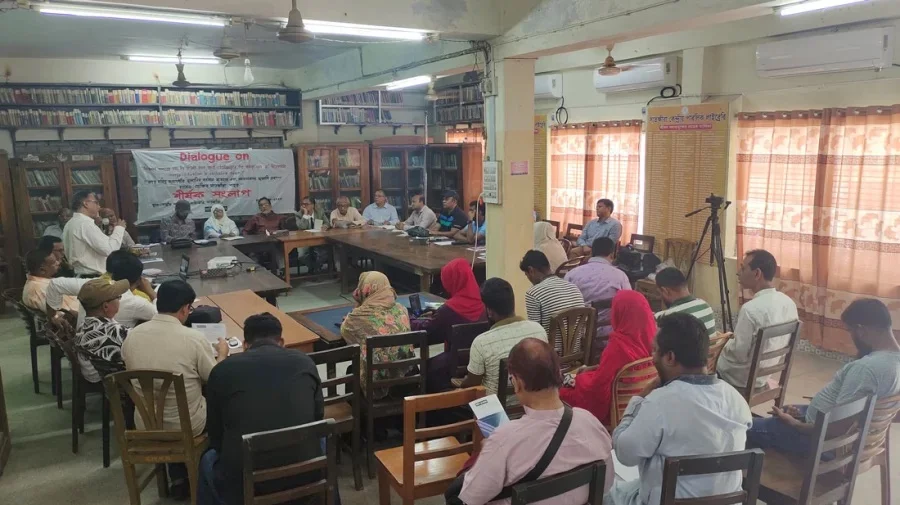Study: 94% of urban poor in Satkhira not familiar with renewable energy
Share on:

16% of monthly income spent on electricity, cooking expenses
Around 94% of poor people in Satkhira are not familiar with the term “renewable energy”.
This information was revealed in a dialogue titled “Current use of energy by urban poor and challenges in adoption of renewable energy: Perspective of Satkhira city” organized by the private research institute Bangladesh Resource Centre for Indigenous Knowledge (BARCIK) at Satkhira Central Public Library auditorium on Monday.
Besides, about 16% of the monthly income of these families is spent on electricity and cooking expenses.
The average family spends about Tk2,372 per month. Out of this, the average electricity consumption is Tk1,144 while the cost of cooking fuel is Tk1,227.
In the dialogue, Project Director Kamruzzaman Sagar presented the results of research on the energy consumption of urban poor people in Satkhira.
BARCIK recently conducted this study on the energy consumption of the urban poor in the capital city of Dhaka, the divisional city of Rajshahi, and the district city of Satkhira to look at the challenges faced by the poor in using renewable energy.
According to the results of the study, the urban poor use different types of fuel according to availability. In this case, 95% of families among the urban poor in Satkhira use wood for cooking, 58% of households use tree leaves, 40% of households use gas cylinders, and 32% of households use plastic/polythene.
In the last two years, 5% of urban poor households have had an accident. Accidents occurred from using cooking sticks. 26% of household members had a severe cough in the past six months due to cooking fumes.
Most notably, 94% of respondents said they were not familiar with the term “renewable energy” during data collection.
Only 6% of respondents said they had heard the term and had an idea about it. In addition, about 3% of urban poor families in Satkhira city said that they use solar panels.
The Mujib Climate Prosperity Plan calls for 30% renewable energy use by 2030 and at least 40% by 2041, the dialogue said.
The government has set a target of 100% clean cookstoves by 2030. However, the poor people of the city have no idea about it. This target cannot be achieved by excluding the urban poor.
The study recommends that local governments and other organizations take initiatives to increase the use of renewable energy/fuels to implement the Mujib Climate Prosperity Plan pledges, address climate change risks, and control pollution.
Encouraging the use of renewable energy, taking initiatives, and making policies inclusive of these issues should improve the quality of life of the urban poor, reduce energy costs, and improve the environment.
There is a lack of proper information and awareness among people about renewable energy. So public awareness should be increased. The related government institutions and private institutions have to undertake various publicity initiatives. In urban poor areas needs must be determined locally.
According to the capacity and needs of the urban poor, various packages can be taken up for sale at low prices with government and private subsidies.

